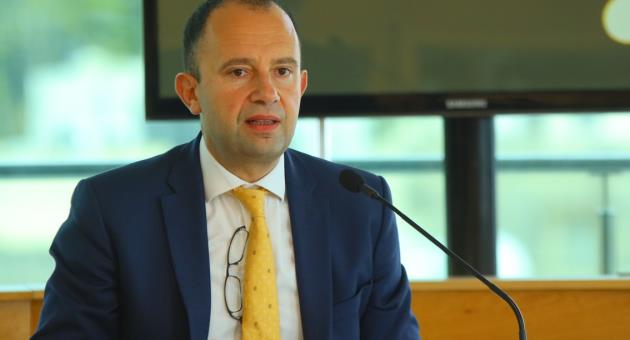
For years Claudio Grech was my colleague, and for years he was my direct supervisor. I have more reasons than most to feel regret he has left front line politics without the country getting the chance of having him run a government department for a few years. Whether Labour or Nationalist, genuinely competent, calm, and rational ministers who can cooperate with people across the political divide, mobilise resources, and are scrupulous about public spending to a fault, are a rare find.
Claudio Grech is such a rare find which now makes him a great loss. The timing for his career has been horrible. He is part of a lost generation of people who would have, could have, given a memorable contribution to the country but the political cycle of this moment in history did not allow them to do so.
Many understandably questioned the timing of his announcement not to run at the next election, which coming hours after the treble whammy of similar announcements by Clyde Puli, Kristy Debono, and Mario Galea, felt to some like sabotage. There were differences in the dynamic of things, not least the fact that for months the PN leadership expressed explicit hope that Claudio Grech would reverse his decision to quit front line politics.
For months Claudio Grech argued with his colleagues that fairly or unfairly, rightly or wrongly, no wrong Labour could do (and it did plenty) would stop potential PN voters from justifying their decision to vote Labour on the grounds that the PN’s front bench was weighed down by too many “old faces”.
You’d think the PN was some geriatric club of wrinkly, senile, old men. It isn’t.
Politics in this country has taken a strange, celebrity turn. You couldn’t imagine a 50-year-old winning the X Factor. Politics has become just as addicted to the appearance of its surface.
I acknowledge this is self-serving and I say so because it’s not meant to be. I contested a general election in my mid-30s and I was handed an abysmal result because voters had better options available to them.
Claudio Grech has argued to his colleagues that the fact that they won their seats by concentrating around their recognisable names enough votes cast by the overall dwindling number of people voting for the Nationalist Party did not automatically make them the best choice the electorate could have made if they had not been on the ballot sheet. If the recognisable names had not been on the list, less recognisable names of eminently competent people would have been in their place and for being unrecognisable those new names could finally convince people who otherwise would not, to vote for the PN.
This extends the brutality of our electoral system to its logical conclusion. Claudio Grech has found the exit door before – way before – his electorate pointed him towards it. He may have very well remained confident in the chances of his personal re-election but he did not expect his familiar mug to attract new voters to the PN.
It’s all such a terrible waste, really. Our political field is so sparsely populated by people with the obvious potential of securing results that benefit the wider community. If Claudio Grech is right, by making it sparser with his own absence space is created for new shoots to sprout. He may be right. But this should have been harvest time.